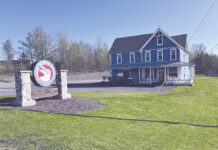If you fill the feeder, they will come.
Well, sometimes it works that way and sometimes it doesn’t. Whether you’re a beginner or a seasoned bird watcher, you’re likely to encounter some of these common problems at your bird feeder.
Vacant feeders
The problem: No birds are visiting your feeder.
Potential reasons: There are a few reasons birds may not be visiting your feeder. If you recently put a feeder out or moved one that was previously established to a new location, it’s possible that the birds haven’t found it yet. If that’s not the case, your feeder may be filled with a bad supply of seed, there might be an abundance of natural food nearby, bird numbers in your area could be low or maybe you’re just not looking for your feathered friends at the right time of day.
New feeders. If you recently established a new feeding site, you can make your feeding site more visible by scattering seed around your feeder.
Bad seed supply. Moldy seed or seed that’s been infested with insects can be a potential problem for seed that’s been sitting for a long time. If you suspect this is the case in your feeder, dump out the seed, clean your feeder and refill it with a new batch of seed.
Abundant natural foods. When natural foods are abundant — summer, fall and early winter — birds are not as attracted to feeders. All you can do wait these periods out. The birds will return when naturally occurring seeds and berries are less abundant.
Diminished bird populations. There may not be birds in your local area for a reason unrelated to bird feeding. You can confirm this theory by talking to others in your area to see if they are seeing many birds.
Timing. Birds visit feeders most often in the early morning and at dusk. If you’re only checking your feeder in the middle of the day, you might just be missing the birds that visit.
Reducing the risk of disease
The problem: Birds are visiting your feeder, but not all of them are healthy. When a sick bird visits your feeder, it can become a catalyst for spreading disease. You can reduce the risk of spreading disease by:
- Only use feeders that can be dismantled and cleaned easily.
- Store seed in a cool, dry place and don’t use it if it becomes moldy.
- Rotating your ground feeding area and raking up and removing debris and droppings on a regular basis.
- If you use a platform feeder or feed birds on a deck or balcony, put out only as much seed as birds can consume in a day. Scrub your feeder with soap and a disinfectant once a week.
- Do not allow residue and mold to accumulate in the bottom of your hanging tube feeder. Empty your feeder and scrub the interior thoroughly to remove mold and residue.
Predators
The problem: Birds are visiting and a nearby predator is taking advantage of it. Bird feeders essentially create a concentration of food, not just for the songbirds you want to attract, but for the animals who like to eat them too. Depending on the type of predator there are a few things you can do to protect your songbirds:
Flying predators. Sometimes songbirds at feeders are preyed on by hawks and other raptors. In this situation, the best way to protect them is by providing cover near your feeder to give the smaller birds a place to hide.
Ground predators. While raptors may prey on your song birds from the sky, cats and other predators may see an opportunity from the opposite vantage point. In this situation, moving your feeder to make it more difficult for cats and other predators to surprise the birds is the best course of action. Position it away from cover such as low shrubs and tree branches where predators may hide. You might also consider surrounding your feeder with chicken wire fencing to protect birds feeding at and below your feeder.
Predators that stalk your feeder. If you’ve already tried moving your feeder to a safer location, but it’s not deterring the predator from hanging out, take your feeder down for a couple of days until it decides to look elsewhere for food.
Squirrels
The problem: It’s difficult to attract birds to a feeder and not squirrels. As it turns out, they like the same foods. There are things you can try to keep them away from your feeder, but there’s no guarantee of success. Squirrels are hard to outsmart.
Squirrel-proof feeders. I have a squirrel-proof feeder and it works very well. It’s spring loaded and when there’s too much weight on the perches, the springs uncoil and the feeding holes are covered. However, because squirrels are crafty and persistent, they have started to bend back the metal leaves that cover the feeding holes. It works just fine for now, but it will probably need replaced at the end of the season. It’s taken a beating.
Baffle. You could try putting a baffle — a bowl- or umbrella-shaped plastic or metal barrier — on the shepherd’s hook or pole your feeder is hanging from. The idea is to block squirrels from climbing past it, but they often do.
Feed squirrels separately. You could try offering squirrels dried ears of corn, peanuts, or cracked corn at a location away from your feeder. This allows them to enjoy a free meal while keeping them away from the more expensive sunflower seed in your feeder. But who knows, they might finish their meal and resume their assault on your feeder.
Windows
The problem: Sometimes birds will mistake large windows that reflect the outdoors for an opening. Not realizing there’s an obstruction, they will hit the window at high speeds and usually die instantly.
Feeder placement. You can minimize window crashes by placing feeders within three feet of windows. Generally, birds will slow down to land on the feeder and when they take off again, they won’t have enough speed to hit the window with much impact. This also gives them an opportunity to realize the window is a barrier and not an opening as they are feeding right next to it.
Netting. You could also try purchasing bird netting to put over the window. The netting will catch any birds that mistake the window for an opening and you’ll still be able to see out of it.












I liked that you mentioned you need to install bird feeders that are easy to clean. My husband is thinking about installing a bird feeder in our recently renovated backyard, and we are looking for advice. I will pass this information to him to help him make a decision.
Crushed red pepper flakes mixed in with the birdseed is a deterrent to squirrels
Very nice article. Very helpful!